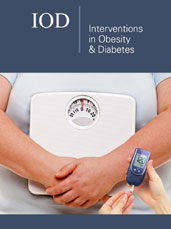- Submissions

Abstract
Interventions in Obesity & Diabetes
Effect of Ramadan Fasting on Biochemical Parameters, Dietary Intake in Type 2 Diabetes Miletus in the State of Qatar
-
Open or CloseDr. Ghazi Daradkeh1* Ph.D., Dr. Hassan Abuzaid2 MD, Dr. Mohammad Abuhmaira2 MD, Michelle Calapano1, Hanna Acido1, Marwa Rustom1, Cheryl Cajayon1, Anna Hernando1 and Asmaa AL-Muhannadi1
1Dietetics & Nutrition Dep, AL - Khor Hospital, Hamad Medical Corporation, Qatar
2Medicine Dep, Al- Khor Hospital, Hamad Medical Corporation, Qatar
*Corresponding author:Dr. Ghazi Daradkeh, Department of Dietetics and Clinical Nutrition, Al-Khor Hospital, Hamad Medical Corporation, Qatar, Mob: +97466256246/ E-mail: gdaradkeh@hamad.qa
Submission: February 04, 2022Published: February 15, 2022

ISSN : 2578-0263Volume5 Issue5
Abstract
Background: During Ramadan, type 2 diabetic Muslims abstain from eating and drinking from sunrise to sunset. This long fasting period may cause changes in blood glucose, glycosylated hemoglobin, lipid profile and other biochemical parameters, eating behaviors, and nutrient intake. The purpose of this study was to assess the effects of Ramadan fasting on nutrient intake, changes in blood sugar, lipid profile and, other biochemical parameters in type 2 diabetic patients who fasted Ramadan in the state of Qatar.
Methods: The study was conducted among 38 Muslim subjects with type 2 diabetes mellitus who undertook fasting during Ramadan. All subjects were subjected to a dietary assessment at three stages, i.e., Before Ramadan (BR), During Ramadan (DR), and After Ramadan (AR), by a trained dietician. The 24-hour dietary recall method was the tool for dietary assessment. Energy, macronutrients, sodium, and calcium intake were assessed using a 24-hour recall through a face-to-face interview in each stage. 5ml blood sample was collected to measure FBS, HbA1c, lipid profile, creatinine, BUN, sodium, and calcium were measured before, during and after Ramadan.
Results: Significant decrease in fasting blood sugar (P=0.03), HbA1c level (P=0.04), BUN (P=0.04), and creatinine (P=0.03). While the non-significant increases in lipid profile including total cholesterol, LDL-C, HDL‐C and TG were noticed (P>0.05). There is no change was noticed in albumin, hemoglobin, and vitamin D. Daily consumption of energy, carbohydrate, and protein was significantly reduced during Ramadan (p < 0.000) when compared to before Ramadan. While fat, sodium, and calcium intake were significantly increased during Ramadan fasting (p < 0.000).
Conclusion: Ramadan fasting improve fasting blood sugar, HbA1-c, and some of biochemical parameters but has no effect on lipid profile. Reduce total energy and variations in macro and micronutrients intake during Ramadan fasting.
Keywords:Ramadan fasting; Energy; Intake; Dawn; Sunset
 a Creative Commons Attribution 4.0 International License. Based on a work at www.crimsonpublishers.com.
Best viewed in
a Creative Commons Attribution 4.0 International License. Based on a work at www.crimsonpublishers.com.
Best viewed in 







.jpg)






























 Editorial Board Registrations
Editorial Board Registrations Submit your Article
Submit your Article Refer a Friend
Refer a Friend Advertise With Us
Advertise With Us
.jpg)






.jpg)














.bmp)
.jpg)
.png)
.jpg)










.jpg)






.png)

.png)



.png)






